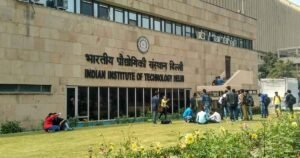The Number of Seats in IIMs for MBA: A Comprehensive Guide
How many seats in IIM for MBA : A Comprehensive Guide. Securing admission to the Master of Business Administration (MBA) program at the Indian Institutes of Management (IIMs) is a significant milestone for aspiring management professionals. However, understanding the intricacies of seat availability across various IIMs is essential for candidates planning to embark on their management education journey. In this comprehensive guide, we will explore in detail the total number of seats available in IIMs for the MBA program, the factors influencing seat allocation, and the admission process.
Total Number of Seats
- Variable Seat Allocation: The total number of seats for the MBA program in IIMs can fluctuate annually due to several factors, including institute policies, program offerings, and government regulations. Each IIM may adjust its seat allocation strategy based on demand, infrastructure capacity, and educational objectives.
- Program Offerings: IIMs offer a diverse range of MBA programs, catering to the needs of different student cohorts. The flagship program is typically the Post Graduate Programme in Management (PGP), but there are also specialized programs such as Executive MBA, Fellow Programme in Management (FPM), and industry-specific management programs. The number of seats for each program may vary depending on factors like market demand, faculty availability, and industry partnerships.
Factors Influencing Seat Allocation
- Institute Policies: Each IIM has its own admission policies and criteria for seat allocation. These policies consider various factors such as academic performance, entrance exam scores (e.g., CAT), diversity (including gender and academic background), and work experience. Some IIMs may prioritize certain criteria over others based on their institutional values and goals.
- Government Regulations: IIMs operate under the guidance and regulations of the Ministry of Education, Government of India. Government directives regarding reservation policies, fee structures, and educational outreach programs may influence seat allocation decisions. IIMs are required to adhere to these regulations while ensuring fairness and equal opportunities for all candidates.
Admission Process
- Entrance Exams: The Common Admission Test (CAT) is the primary entrance exam for admission to the MBA program in IIMs. CAT assesses candidates’ aptitude in quantitative ability, verbal ability, data interpretation, and logical reasoning. Candidates need to achieve a high percentile in CAT to qualify for further rounds of the admission process.
- Interview and Selection Rounds: Shortlisted candidates are typically invited for personal interviews and group discussions (GD/PI), where they are evaluated on various parameters such as academic background, work experience, leadership potential, communication skills, and overall personality. Final selections are made based on the candidate’s performance in these rounds, along with their CAT score and other relevant criteria.
Conclusion
Understanding the seat availability and admission process in IIMs for the MBA program is crucial for prospective applicants. By considering factors such as variable seat allocation, institute policies, government regulations, entrance exams, and selection rounds, candidates can better prepare themselves for the competitive journey towards securing a seat in their desired IIM. Aspiring management professionals should stay informed, strategize effectively, and present their best selves during the admission process to maximize their chances of success.





